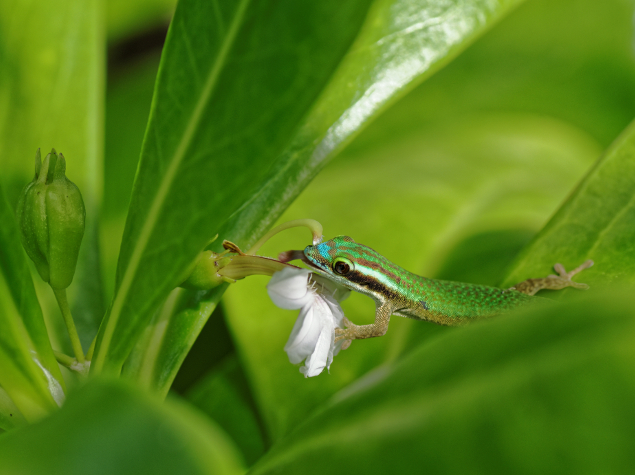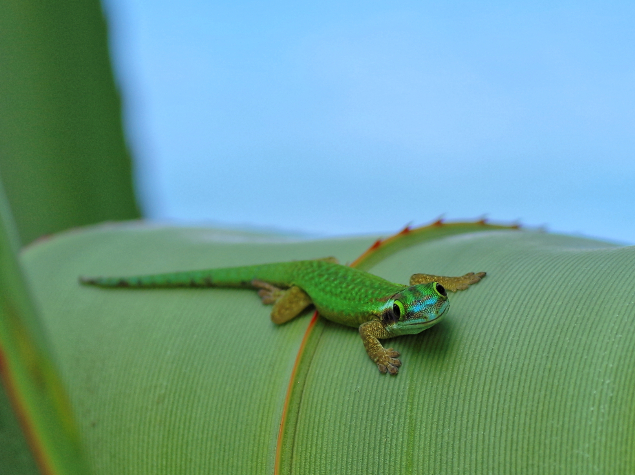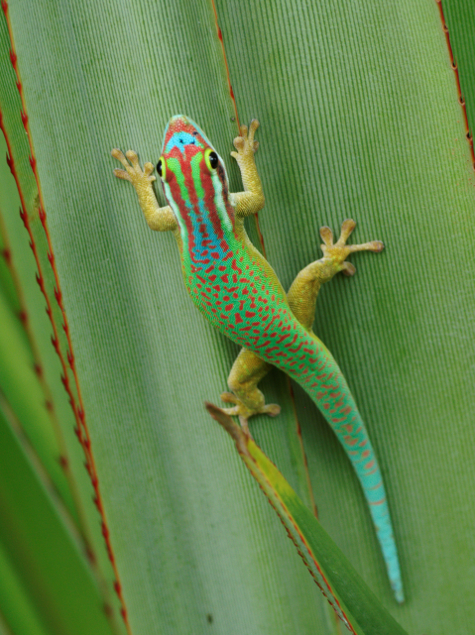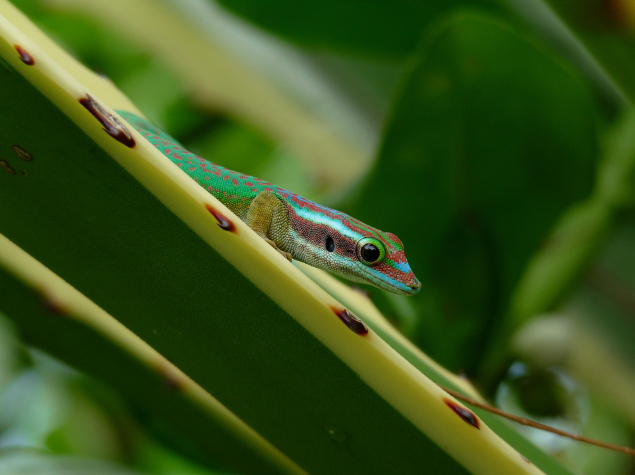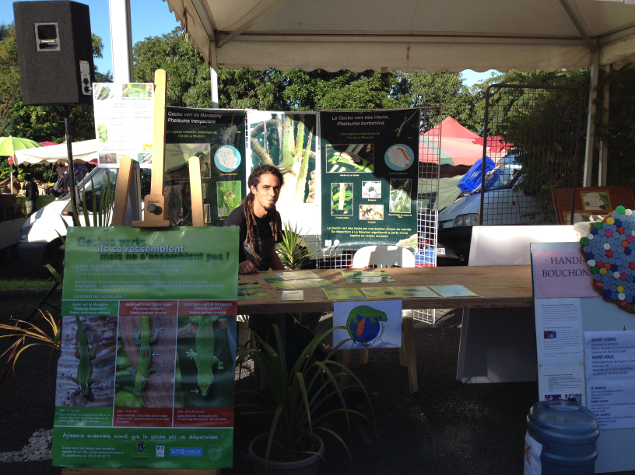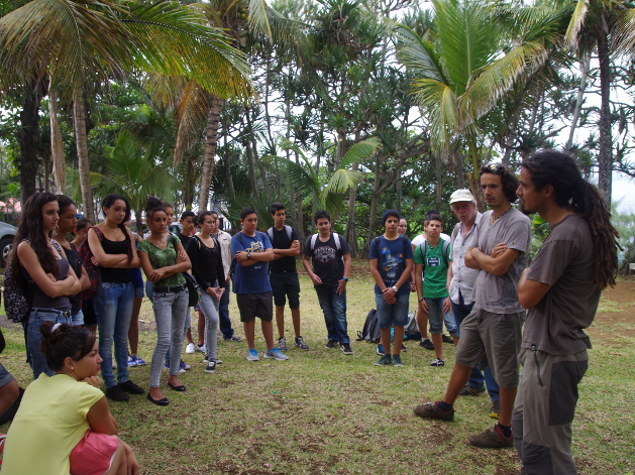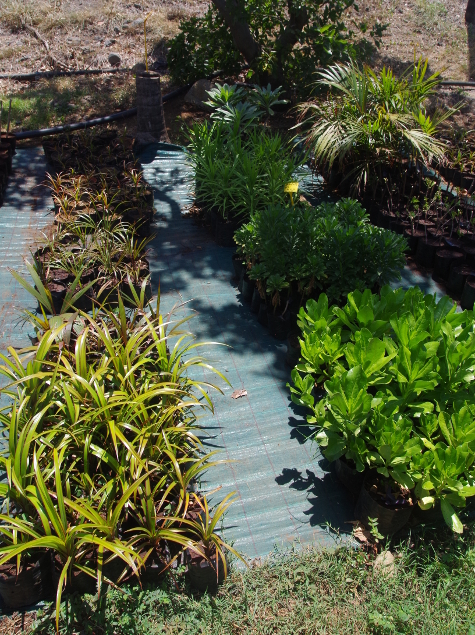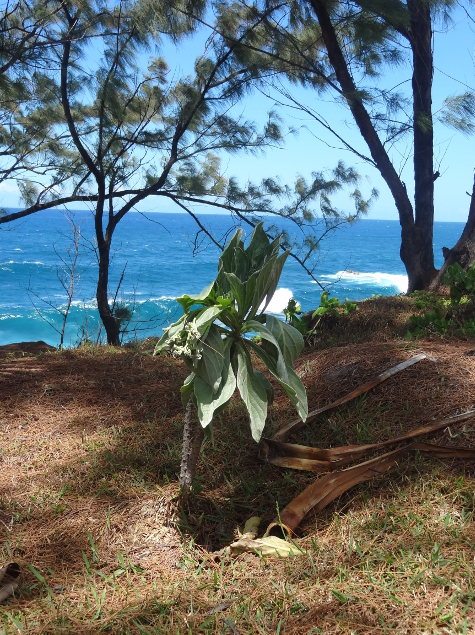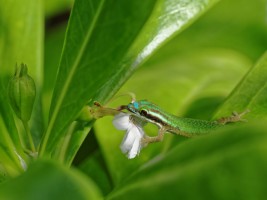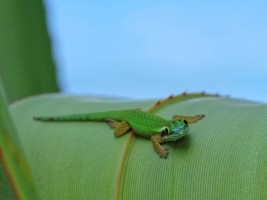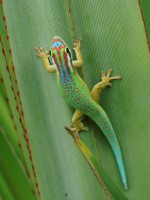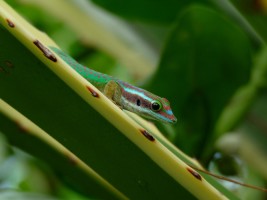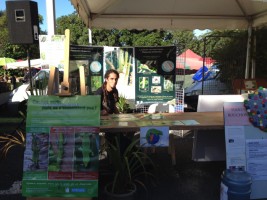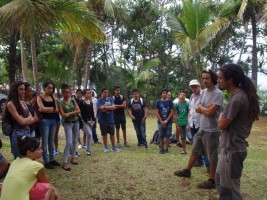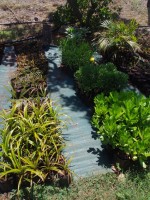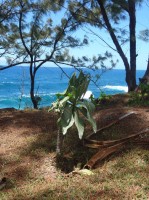‘Refuges for the Manapany ornate day gecko’, a participatory conservation initiative to preserve an endangered species in an urban environment
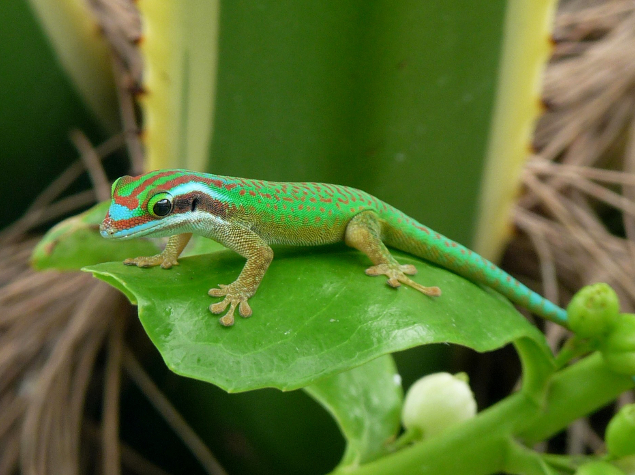
The Manapany ornate day gecko (Phelsuma inexpectata) is a species endemic to the island of Réunion. It is now found only in the south of the island on a narrow 11 km long coastal strip. The population is estimated at between 3000 and 5000, with a sharp decline in numbers observed over the last 20 years. The species is now classified as ‘critically endangered’ on the IUCN Red List.
The survival of this arboreal lizard depends on maintenance of its habitat, which is gradually disappearing. It lives in the vegetation native to the coastal cliffs and in private gardens. As these gardens are a prime habitat (home to nearly half the lizards), it is vital that the local population be involved in conservation efforts.
Adopting a participatory conservation approach, Operation ‘Refuges for the Manapany Ornate Day Gecko’ was launched on the initiative of the association Nature Océan Indien (NOI), to meet two main objectives:
- To ensure long-term protection and conservation of the gecko populations in private gardens;
- To improve the species’ living conditions and encourage the geckos to settle in new gardens.
The creation of a refuge is based on signature of an agreement, which commits the signatory to take the gecko into account in the everyday running of the household (garden maintenance, recommendations for any work required, etc.) and includes other optional measures (planting of suitable species, monitoring of the geckos on the person’s land). The association personally helps and supports each refuge by passing on useful information for protecting the species on the person’s land and providing free plants conducive to the gecko’s development in the gardens. In addition, NOI offers participants the chance to take part in individual and collective conservation efforts to protect the Manapany ornate day gecko: a network for reporting sightings of invasive species of green day gecko; plant production; volunteer ecological restoration work on the gecko’s natural habitat, etc.
Summary of the final report (June 2016):
Fondation Ensemble first supported this project from July 2015 to July 2016. During this period, 41 new refuges were created, bringing the total to 143. At the same time, 173 seedlings conducive to the geckos’ development were produced and distributed. A collective initiative involving 13 participants was organized, enabling 300m2 of habitat to be restored and 30 seedlings to be planted. Finally, gecko monitoring via photo identification was introduced in 10 of the participating refuges, allowing 80 individuals to be identified and a database to be set up.
Thanks to this initiative, four new populations were documented and the species’ range mapped. A total of 43% of urban areas where geckos are found are now covered by a protection convention.
In 2019, Fondation Ensemble is making a second contribution to this project
Since the previous Foundation grant, new issues have emerged: limited human resources and equipment at the plant nursery; lack of knowledge of the species on the part of some members; and the arrival of a new invasive species (green day gecko). To tackle these problems, seeds and cuttings will be harvested, seedlings will be produced, and the nursery will be equipped with the means to protect the youngest seedlings. Members of the ‘Gecko Refuge’ network will be given the seedlings produced to plant on their own plot of land, and two days of training on aspects of ethology and ecology will be organized. Individual meetings will also be held. Posters and brochures will be distributed to tourism and restaurant professionals as well as during the training sessions.
Final report summary (July 2020):
Over this new period supported by the Foundation, the nursery has been protected from neighboring animals (chicken) and expanded. Seedling have been elevated to be isolated from the ground and no longer be accessible by invertebrates. Other seedlings have been collected outdoor to be cultivated. 243 individual contacts with shelters, among which 120 were directly visited, have occurred. 2,000 booklets have been printed to be distributed. 11 new houses joined the network as well as 6 new tenants or owners who moved into an existing shelter. Today, there are 118 active shelters out of the 165 reported since 2013.
Shelter visits and seedling distributions have been impacted by confinement, but this miss was compensated by phone contacts.

